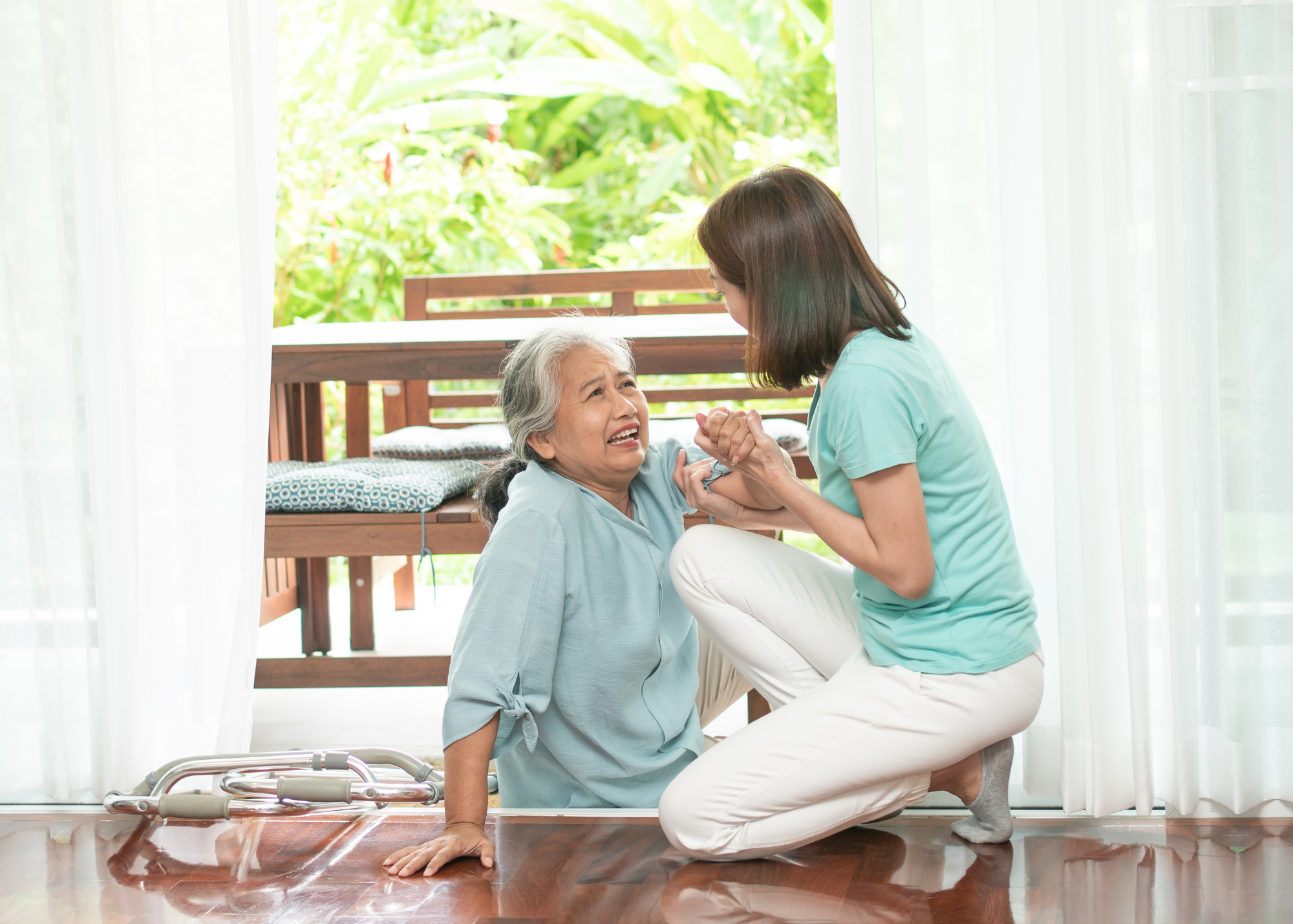What Causes Falls in Older Adults?
One in four Americans aged 65 and older falls each year, making falls the leading cause of injury and injury-related death in this age group. Understanding the common causes of falls can help in preventing falls and reducing injury risk:
- Sensory Impairments: Vision and hearing may not be as sharp, affecting balance and spatial awareness.
- Medical Conditions: Health issues such as diabetes, heart disease, neuropathy, or vascular problems can increase fall risk.
- Bladder Health: An increased need to urinate or bladder control difficulties may lead to falls, especially when rushing to the bathroom.
- Cognitive Impairments: Dementia and memory issues can increase fall risk due to forgetfulness in using assistive devices or misjudging fall hazards.
- Age-Related Physical Changes: Muscle mass and strength decline with age, and postural hypotension (blood pressure drops upon standing) can contribute to falls.
- Medication Side Effects: Certain medications cause dizziness, lightheadedness, or confusion, increasing the likelihood of falls.
- Home Hazards: Tripping hazards like rugs, cords, or clutter increase fall risks in the home.
Tips to Prevent Falls and Stay Safe
- Balance and Strength Training: Engaging in exercises like yoga, pilates, or tai chi improves balance and strength.
- Join a Gym or Class: Regular workouts can help maintain fitness, strengthen muscles, and enhance flexibility.
- Physical Therapy: A physical therapist can design interventions to improve balance, strength, and confidence in daily activities. (We have five physical therapy clinics in Arizona ready to help!)
- Stay Physically Active: Regular activity prevents muscle loss (sarcopenia), boosts cardiovascular health, and maintains bone and joint flexibility.
- Home Adjustments: Remove tripping hazards and install grab bars in bathrooms to support balance.
- Routine Medical Checkups: Get regular eye and ear exams to address sensory changes.
- Get Enough Sleep: Avoid fatigue that can increase fall risk.
- Stand Up Slowly: This helps reduce the risk of dizziness or postural hypotension.
- Review Medications with Your Doctor: Ask about side effects that may increase fall risk.
- Use Assistive Devices: A physical therapist can help you choose and learn to use devices like canes or walkers safely.
- Choose Proper Footwear: Wear supportive, non-skid, low-heeled, and rubber-soled shoes to prevent slipping.
- Keep Hands Free: Avoid carrying heavy objects while walking to keep hands available for balance.
What to Do if You Fall
Knowing how to respond to a fall can be crucial for safety and recovery:
- Breathe and Stay Calm: Falling can be frightening; take deep breaths to manage anxiety and regain focus.
- Check for Injuries: Avoid moving if you suspect an injury to prevent worsening the problem.
- Get Up Safely if Uninjured:
- Roll onto your side, then onto hands and knees.
- Crawl to a sturdy chair.
- Place hands on the chair seat, slide one foot forward, and move to a kneeling position.
- Rise slowly and sit in the chair to stabilize.
- Get Help: If injured, call 911 or a trusted contact. Consider wearing an emergency response necklace to summon help when alone.
If you want to be proactive with your fall-risk, AzOPT Physical Therapy in Arizona is here to help. Click here to learn more and to schedule an appointment.







